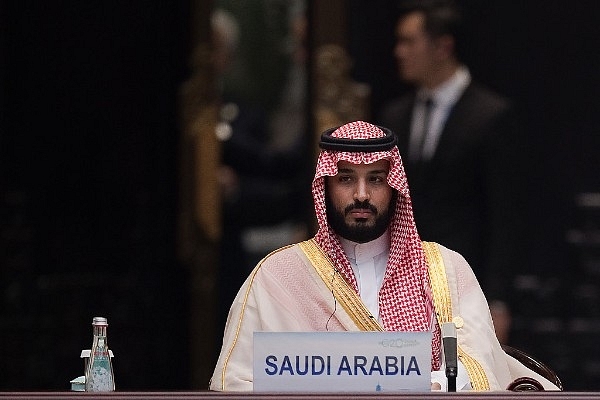Insta
Saudi Arabia To Stop Funding Mosques In Foreign Countries For ‘Security Reasons’: Report

Saudi Arabia Deputy Crown Prince Mohammed bin Salman at the United Nations. (Nicolas Asfouri - Pool/Getty Images)
Former Saudi minister of justice, Mohammed Bin Abdul-Karim Issa, announced his country would no longer fund mosques in foreign countries, reported Wion, attributing a Swiss newspaper.
The minister added, “The time has come to hand over the Geneva Mosque to a Swiss administrative council that represents Muslims in the area. It should have an elected cleric.”
This unthinkable measure has been taken with all the mosques all over the world, referring to “security reasons”.
Quoted by Swiss newspaper, Le Matin Dimanche, Mohammed Bin Abdul-Karim Issa said, “The same measures will be taken around the world. In every country, there will be a local board of administration set up in coordination with the national authorities. This is necessary, for example, for security reasons. We should ensure that the mosques end up in safe hands. Then we will no longer intervene”.
On Thursday (23 January), Abdul-Karim Issa visited the Auschwitz camp on the 75th anniversary of its liberation were he honoured the Jewish victims of the Holocaust under the Nazi regime.
After oil was discovered, Saudi Arabia has used the petrodollar to spread the puritanical Wahhabi Islam to the world. By 2007, Saudi kingdom had spent close to $2 billion annually on promoting Wahhabi ideology as part of their “soft power" where they fund mosques in several countries, including India, which have Muslim communities.
The heir apparent to the Saudi throne, Crown Prince Mohammad bin Salman is trying to modernise the country by separating politics and religion which is antithesis of Islam practiced in this region.
Introducing ElectionsHQ + 50 Ground Reports Project
The 2024 elections might seem easy to guess, but there are some important questions that shouldn't be missed.
Do freebies still sway voters? Do people prioritise infrastructure when voting? How will Punjab vote?
The answers to these questions provide great insights into where we, as a country, are headed in the years to come.
Swarajya is starting a project with an aim to do 50 solid ground stories and a smart commentary service on WhatsApp, a one-of-a-kind. We'd love your support during this election season.
Click below to contribute.
Latest